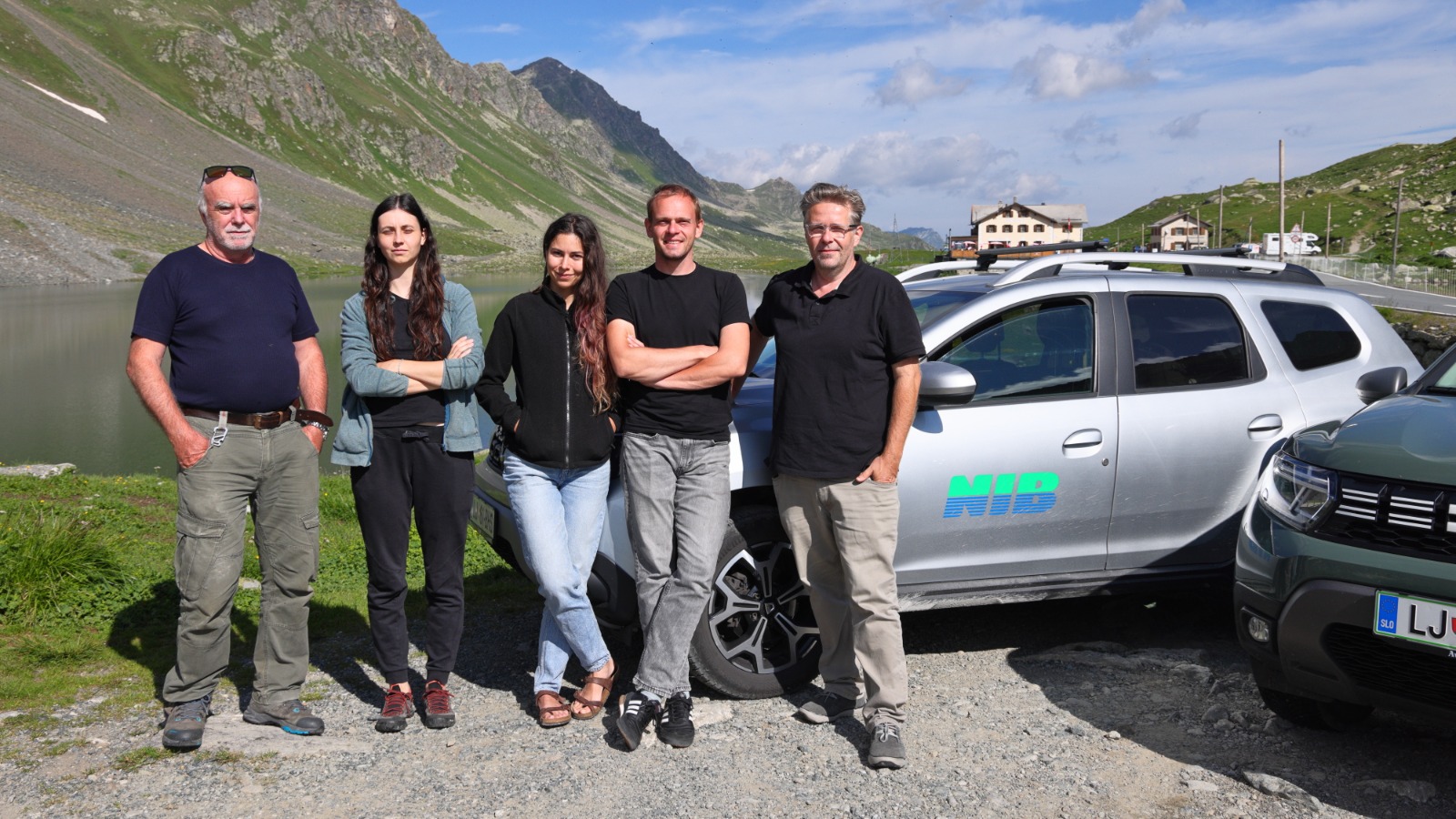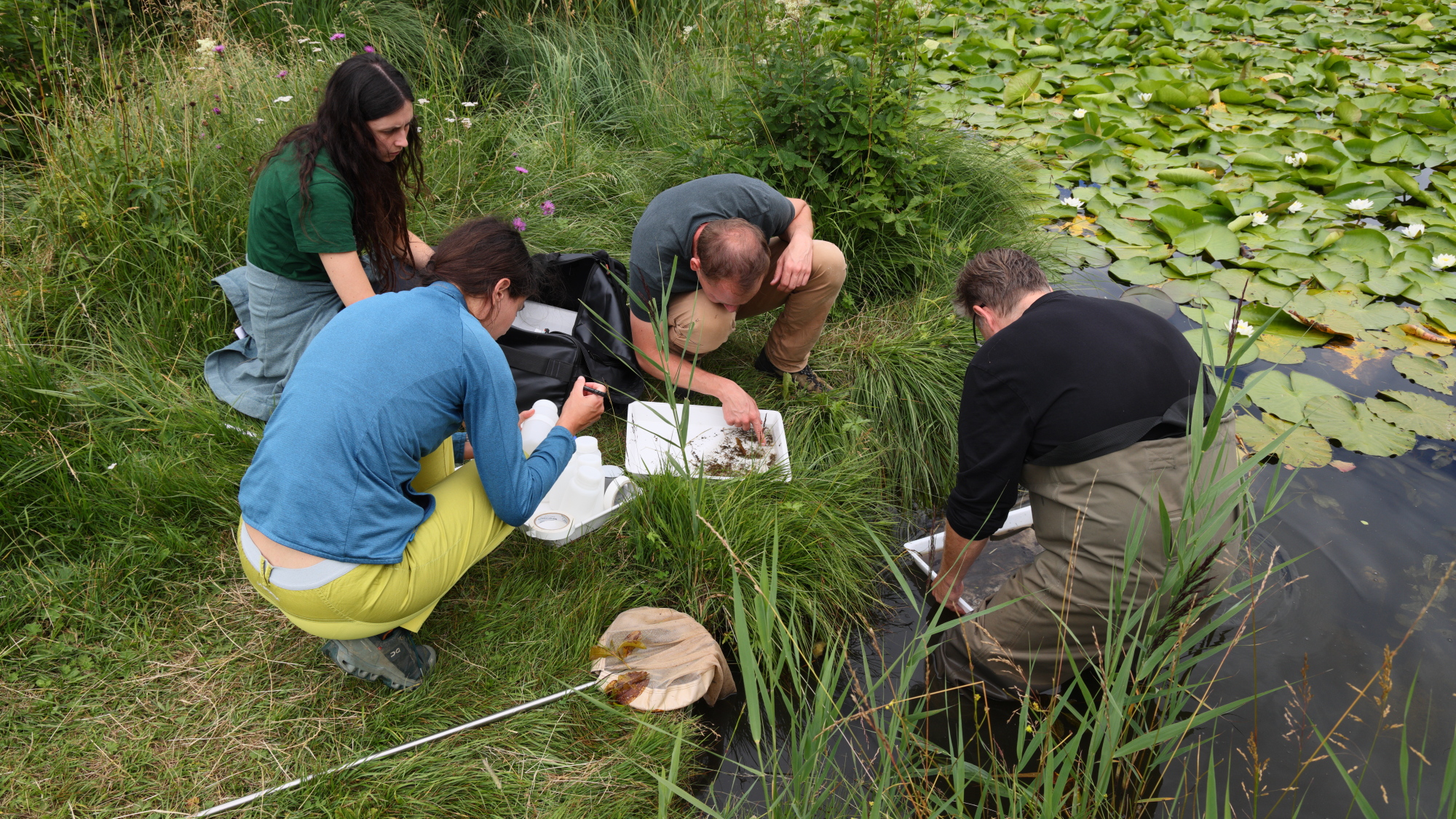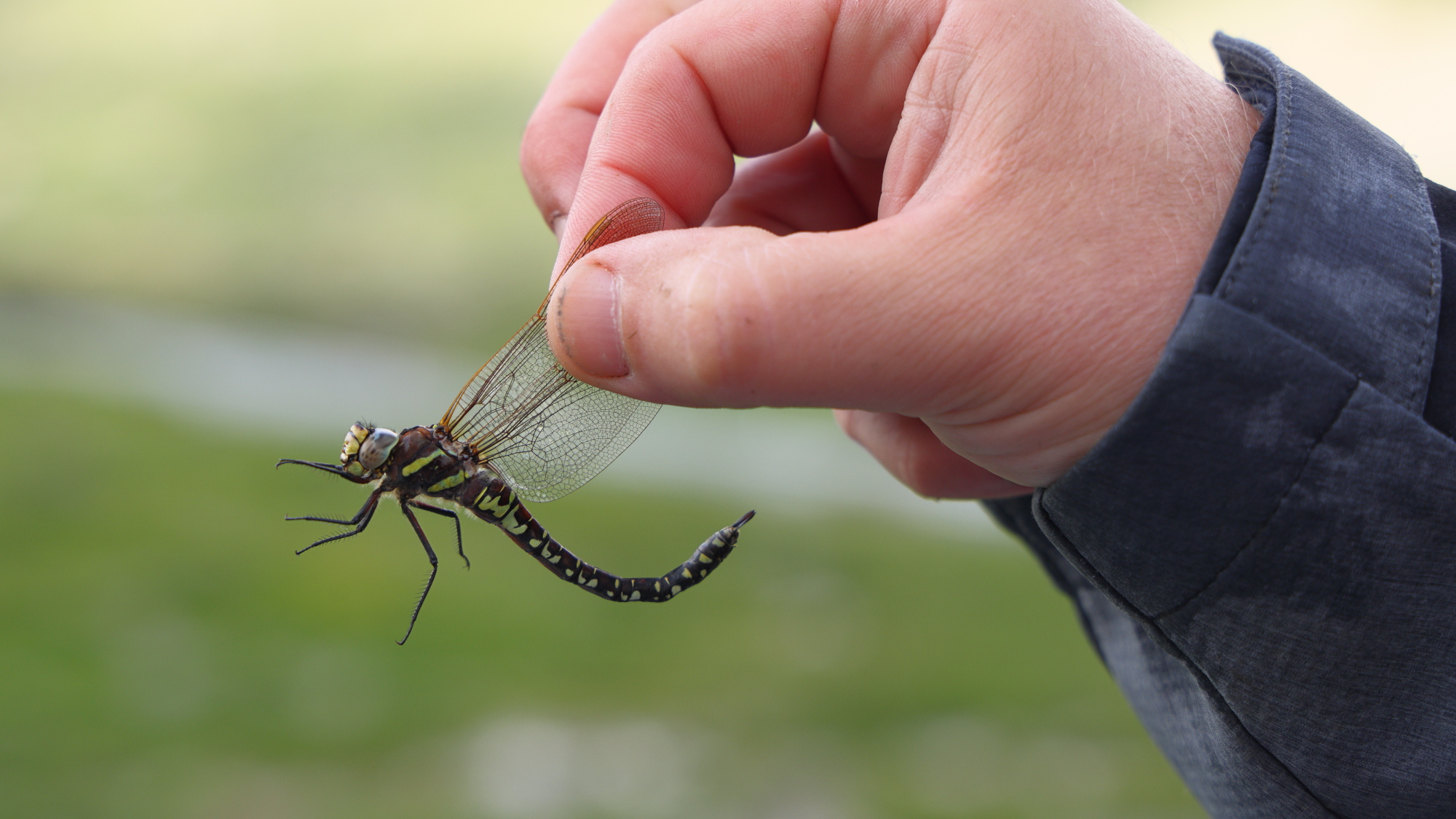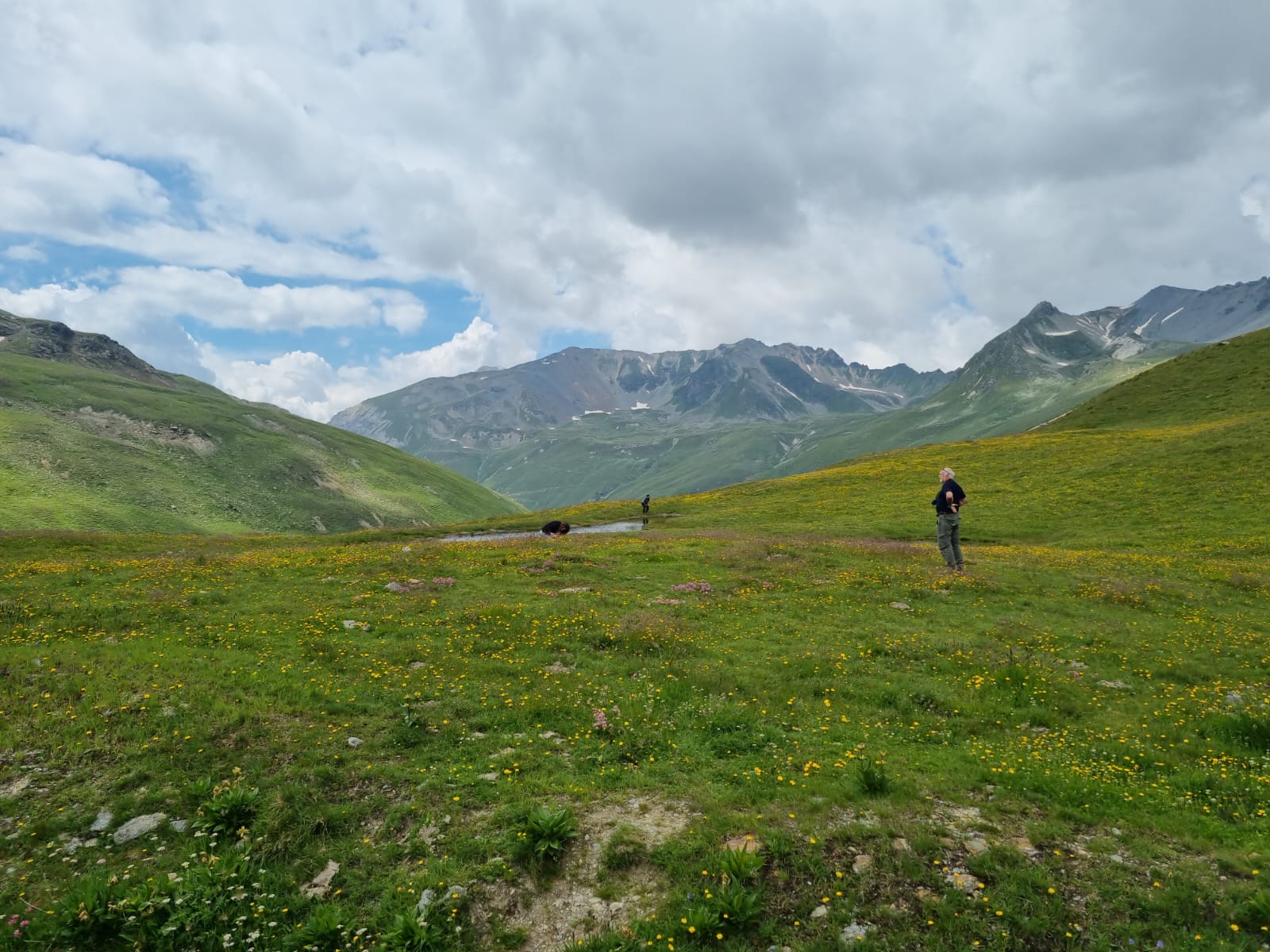How does climate change affect the physiology of high-altitude ectotherms?
Project leader: Anamarija Zagar
eLTER TA sites: Stillberg
In the project Ecto-High-Expand, researchers from the National Institute of Biology (NIB) from Slovenia conducted a 6-day field trip in July 2024 to the South Eastern Swiss Alps surrounding of eLTER site Stillberg. The hosts were researchers from the WSL Institute for Snow and Avalanche Research SLF in Davos. 
We used the transnational access (TA) to collect samples to investigate metabolism at the subcellular level from different ectotherm groups of invertebrates: dragonflies (Odonata), grasshoppers (Orthoptera), Ostracods (Ostracoda) and Amphipods (Amphipoda).
Five researchers (from young to senior ones) visited 11 different locations in the elevations ranging from 520 to 2300 m. The highest points even had to be accessed with cable car.
Sampling of invertebrates was diverse, since some live in the water and some on land. Faster and younger researchers were running around with a net to capture fast flying dragonflies. On the other hand, larvae of dragonflies live in water and in the mud, thus deep-net sampling was used, and high rubber boots are a must-have not to get wet and cold in Alpine lakes. 

We collected only the samples that are needed to make a scientific comparison of populations at different altitudes. Each individual sample was labelled with an individual ID and stored in a separate vial. The samples were immediately placed on dry ice and frozen. In this way we keep the metabolic processes in almost the same state as when the animal was alive, and the sample was taken and later in the laboratory we can asses it using specific biochemical analysis.
With our results, we expect to gain a better understanding of the altitudinal adaptation of subcellular metabolic traits in ectotherms. We conducted our sampling of three different ectotherm groups in a high-elevation range and collected specimens at some very high-altitude sites. We sampled two life stages - larvae and adult - and in two different habitats - aquatic and terrestrial. This allows us to analyse how both habitat and phenology (age) influence the metabolic physiology of these underexplored ectotherm species.

The field sampling trip would not be possible without the coordinators of the host institution WSL Institute for Snow and Avalanche Research SLF that provided us with the support and kind welcome. They invited us to take part in the regular seminars they hold at WSL SLF. Anamarija Zagar will give an online seminar about this project in December 2024.
With such a great transnational access experience under eLTER PLUS this year and already previously in 2022, we are excited to take the opportunity in the future and expand our sampling to another Alpine region.